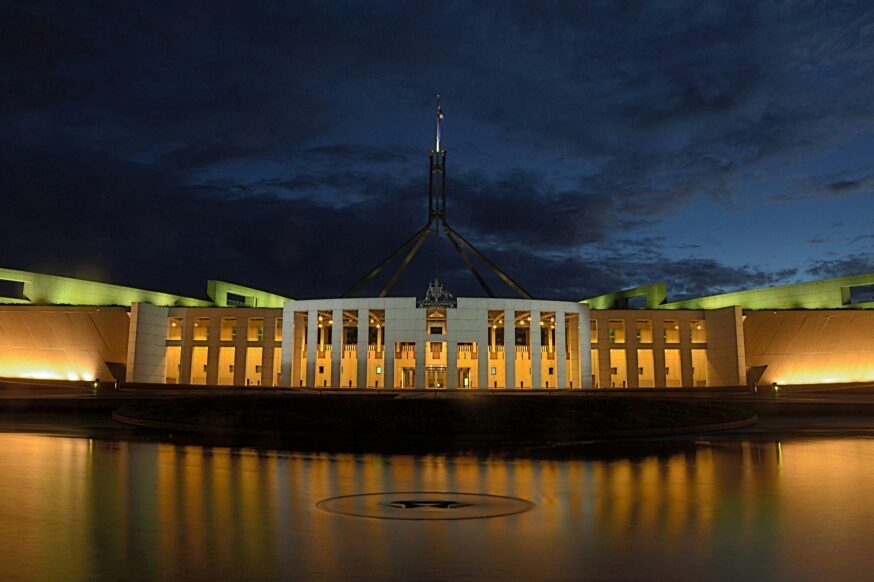Over the past few years, we at the Centre for Public Impact Australia and Aotearoa New Zealand have designed and delivered several learning journeys with teams from across all levels of the public sector. With numerous engagements under our belts, we’ve taken the time to reflect on our unique approach to learning that’s emerged through our practice.
While this is continually evolving, our approach to learning can be summarised into six key principles:
Tailor to context
Learning experiences must be grounded in the unique context of the participating cohort to ensure learning is meaningful for the group. For us, this means taking the time to understand the environment in which learning occurs, including the unique challenges and opportunities across the system. This helps us to create bespoke learning experiences, enabling participants to apply the ideas to their work. As a result, no learning experiences are the same – we often adapt or create activities, games, and content to suit specific needs.
Centre collective learning
When creating and facilitating learning experiences, we choose to position ourselves as more of a coach and mentor and less of an expert delivering a lecture. This enables us to surface, share, and build together on the wisdom held by those in the room. By leveraging existing experience and knowledge and undertaking a collective learning process, we can support participants to value relational ways of working and set up sustainable learning environments that continue beyond our time together.
Complement big ideas with practical tips
We’ve found that inspirational energy and ideas are helpful, even necessary, when facing complex challenges. Inspiration can help groups get unstuck and make real, actionable changes. We’ve also found that incorporating practical advice and grounding big ideas in reality through case studies, examples, and guest presenters are vital to understanding what they look like in practice.

Interrogate ways of being and doing
We believe that our behaviours and actions (our ways of doing) are informed by our values, beliefs, assumptions, and world views (ways of being). Exploring and understanding our ways of being and doing are essential when learning in complex environments, as it’s tough to change one without the other. Through this, we can uncover root causes and develop a deeper understanding of ourselves as individuals and a collective. We’ve found the Water for Systems Change framework and the System Sanctuary’s adaptation of the Geels Power Transition framework to be excellent tools to support this type of interrogation.
Have fun and create engaging experiences
We spend time developing creative activities for our learning experiences – not just because it’s fun (although this is important!) but because it helps the learning stick. Through creating opportunities for experimentation and practising different ways of working together, we create memorable experiences. Alli’s Doctoral research focused on the role of materially rich materials in co-design. Through this, we learned about the transformative power of experiential learning and witnessed powerful shifts in mindsets and behaviours when using playful approaches.
Incorporate reflective practice
Making space for individual and shared reflection throughout learning experiences is vital as it helps participants connect with the ideas and content on a deeper level. A reflective approach encourages participants to shift from seeking expert advice to drawing on their own knowledge, experience, and wisdom, as well as their colleagues’. It’s important to offer reflective activities which accommodate different preferences. For example, participants could individually journal, draw, meditate, or have small group discussions.
These elements sit at the heart of our new offering: Learning journeys for reimagining government.
Learning journeys are shorter, less embedded versions of a longer-term learning partnership. We’ve developed this offering for teams looking to increase their confidence and capabilities for working in complexity but cannot undertake a full learning partnership.
From half-day ‘Orientations’ to multi-session ‘Expeditions’, learning journeys are designed to support those working in and around the public sector to feel more confident in evolving their ways of working to respond to the complex challenges facing government today.
The topics we currently offer include:
- Collaboration in complexity – Learn new ideas, tools, and concepts that support effective collaboration in complex environments.
- Adaptive leadership – Learn new ideas, tools, and concepts that support an approach to leadership that embraces complexity, relationships, and learning.
- Systems thinking (in collaboration with The Systems School) – Build a foundational understanding of systems thinking as a practice and become more systemic in thinking and ways of working.
While each learning journey is unique and tailored to the needs and context of the cohort, participants should expect to be introduced to new ideas and participate in experiential learning activities and games (grounded in theory) that help connect with the ideas and concepts explored. Participants will be invited to reflect on their context and explore how these new ideas can be applied in their context.
If your team is curious about starting a learning journey, contact us and find out more.





